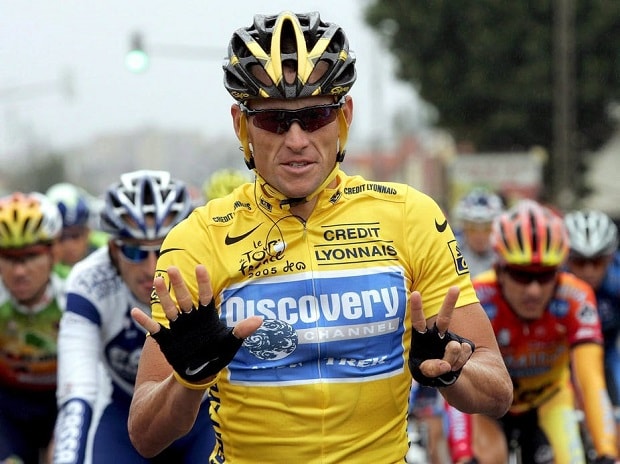
In a bold and powerful statement, singer and activist Tinashe has publicly called out former cycling champion Lance Armstrong for his recent comments regarding transgender athletes. Armstrong, who has a controversial history due to his doping violations, made headlines when he expressed scepticism about the fairness of transgender athletes competing in women’s sports. Tinashe’s response highlights the ongoing debate surrounding inclusivity in sports and sheds light on the complexities of gender identity and the importance of supporting marginalised communities.
The Controversial Comments
Lance Armstrong’s remarks came from a broader discussion about the inclusion of transgender athletes in competitive sports. During the episode, he stated that transgender athletes are not “being fair,” a comment that sparked immediate backlash from advocates for transgender rights and inclusivity. Armstrong’s statement echoed sentiments that have been widely criticised as exclusionary and harmful to the transgender community.
The controversy intensified when Armstrong referred to specific cases, drawing comparisons to other athletes like Lia Thomas, a transgender swimmer who faced significant scrutiny during her collegiate career. Critics argue that such comments perpetuate stigma and misunderstandings about transgender individuals, particularly in competitive environments.
Tinashe’s Response: A Call for Understanding
Tinashe, known for her advocacy work and support for LGBTQ+ rights, wasted no time in addressing Armstrong’s comments. In a passionate social media post, she stated, “Never listen to Lance Armstrong about anything.” This declaration underscores her belief that Armstrong’s perspective is not only flawed but also detrimental to the progress being made towards inclusivity in sports.
In her statement, Tinashe emphasised the importance of understanding and respecting individual identities. “Transgender athletes deserve the same opportunities as anyone else,” she wrote. “We must support them rather than question their legitimacy.” Her words resonate with many who advocate for equality and fairness in sports, highlighting the need for compassion and understanding in discussions surrounding gender identity.
The Broader Debate: Transgender Athletes in Sports
The inclusion of transgender athletes in competitive sports has been a contentious topic over recent years. Supporters argue that everyone should have the right to compete according to their gender identity, while critics often raise concerns about fairness and physical advantages. This debate has gained traction with high-profile cases like Lia Thomas and now Nikki Hiltz, a transgender runner who recently qualified for Team USA at the Paris Olympics.
Nikki Hiltz’s qualification has reignited discussions about the regulations governing transgender athletes. Hiltz identifies as nonbinary and uses they/them pronouns, emphasizing the fluidity of gender identity. Their success story serves as an inspiration to many within the LGBTQ+ community and highlights the importance of representation in sports.
The International Olympic Committee (IOC) has updated its policies regarding transgender athletes, emphasizing inclusivity while also attempting to address concerns about fairness. These changes aim to create a safe environment for all athletes regardless of gender identity, yet debates continue over whether these measures are sufficient.
The Impact of Celebrity Voices
Tinashe’s outspoken stance against Armstrong’s comments reflects a growing trend among celebrities using their platforms to advocate for social justice issues. As public figures, celebrities have a unique ability to influence opinions and raise awareness about marginalized communities. By calling out Armstrong, Tinashe not only defends transgender rights but also encourages others to speak up against discrimination.
The intersection of celebrity culture and activism is increasingly relevant in today’s society. With social media amplifying voices like Tinashe’s, there is potential for significant change as more individuals engage in these important conversations.
The Role of Media in Shaping Perceptions
Media coverage plays a crucial role in shaping public perceptions of issues surrounding gender identity and inclusivity in sports. Armstrong’s comments received widespread attention across various platforms, prompting discussions among fans, analysts, and advocates alike. However, it’s essential to recognize how narratives can be framed—whether they promote understanding or perpetuate division.
As social media amplifies voices—both supportive and critical—athletes must navigate an increasingly complex landscape filled with opinions from all corners. This environment can create additional pressure for competitors who already face immense expectations on race day.
Looking Ahead: What Lies Ahead for Transgender Athletes
As discussions surrounding transgender athletes continue to evolve, sports organisations must prioritise inclusivity while addressing concerns about fairness. The path forward requires collaboration between governing bodies, advocates, and athletes themselves to ensure that everyone can compete on a level playing field.
Tinashe’s call for support resonates strongly within this context; it emphasises the need for compassion and understanding as society grapples with complex issues related to identity. As more athletes come forward with their stories—like Nikki Hiltz—there is hope that progress will be made towards creating an inclusive environment where all individuals can thrive.
A Stand Against Discrimination
Tinashe’s response to Lance Armstrong’s comments serves as a powerful reminder that advocacy is essential in promoting equality and understanding within sports. By standing up against discriminatory remarks and supporting marginalised communities, she encourages others to do the same.
As society continues navigating these important conversations surrounding gender identity and inclusivity, voices like Tinashe’s will play a vital role in shaping perceptions and fostering change. We must listen to those directly affected by these issues while also challenging harmful narratives that perpetuate division.
In this ever-evolving landscape where friendships can quickly turn into rivalries, it remains clear that every interaction counts! With each new season come fresh growth opportunities—and perhaps even new alliances waiting to unfold!
Leave a Reply